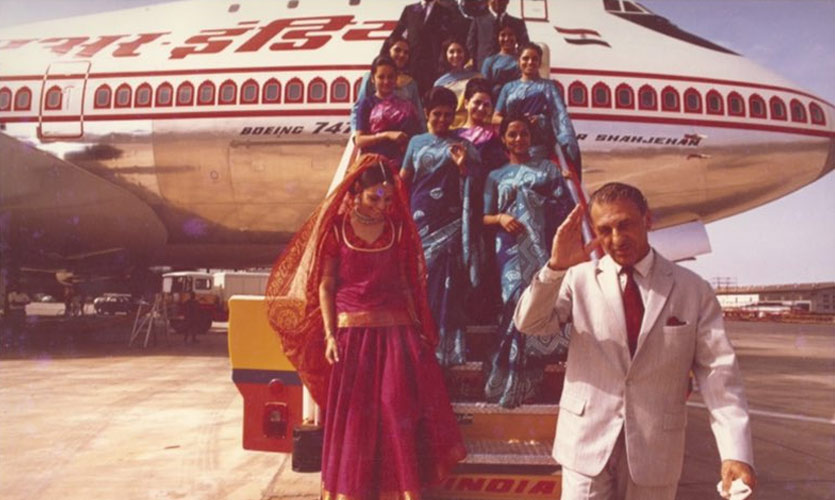In a historic moment, Tata Sons is set to purchase the debt-ridden Air India with a winning bid of ₹18,000 crores, making it a homecoming moment for an airline it had relinquished control of.
The approval came after the Air India Specific Alternative Mechanism, the term given to the group of ministers that comprises Home Minister Amit Shah, Finance Minister Nirmala Sitharaman, and Commerce Minister Piyush Goyal, accepted Tata Sons’ proposal. The panel of ministers chaired by Amit Shah approved the salt-to-software conglomerate’s offer over SpiceJet chief Ajay Singh’s, the only other bidder in the running. Singh had bid about ₹15,100 crores in his personal capacity.
“M/S Talace Pvt Ltd, a wholly-owned subsidiary of Tata Sons, had the winning bid,” said Tuhin Kanta Pandey, secretary of the Department of Investment and Public Asset Management (DIPAM), at a media briefing.
The reserve price for the airline was set at ₹12,906 crores, below which the government would not have considered any proposals. Pandey stated that the transaction will be completed by December 2021.
He mentioned that Air India’s overall debt as of August 31 was ₹61,560 crores. Tata would assume ₹15,300 crores in debt, while ₹46,262 crores will stay with Air India Asset Holdings Ltd, a special purpose entity formed to keep Air India’s non-core assets, land, and debt that Tata will not assume.
“While admittedly it will take considerable effort to rebuild Air India, it will hopefully provide a very strong market opportunity for the Tata Group’s presence in the aviation sector,” said the Tata Group’s chairman emeritus, Ratan Tata.
Air India rejoined the Tata family after 68 years as a government enterprise. The Jawaharlal Nehru administration had nationalised it in 1953. At the time, the government had paid the Tata Group ₹2.8 crores for a 100 percent share in the company.
As per the agreement, the Tata Group will continue the employment of about 12,000 workers of Air India for at least one year as part of the sale acquisition deal. Following the completion of the year, the company will have the option of offering voluntary retirement schemes to Air India personnel, the terms of which have not been finalised with the government as part of the present share purchase deal.
According to the terms of the agreement, which is expected to be finalised by the end of December 2021, Tata would be unable to sell the Air India logo and brand name for the next five years. Even after that, it is not permitted to sell these assets to a foreign corporation.
Despite the baggage of a bloated debt, Air India provides some valuable aviation assets to the Tatas. Due to bilateral flying rights between India and other nations, participation in the Star Alliance global network, a strong mix of narrow-body and wide-body planes, and a skilled crew will provide the Tatas access to slots at crowded international airports and profitable locations such as the Gulf.
Read more: Key Takeaways From The RBI’s Monetary Policy
All of this along with Tata Sons’ controlling holdings in AirAsia India and full-service carrier Vistara gives them tremendous air power. In a single stroke, the Tatas get access to aviation assets that would have taken Vistara years and a lot of money to create. According to Reuters, the company will get ownership of Air India’s 4,400 domestic and 1,800 international landing and parking spaces at domestic airports, as well as 900 slots at foreign airports.
The Tata Group will also receive 50 percent of Air India’s lucrative low-cost subsidiary, Air India Express, and 50 percent of Air India Limited and Singapore Airport Terminal Services (AISATS) that provide cargo and ground handling services at key Indian airports.
The government had amended the rules in October 2020 as part of its current effort to sell Air India, calling for bids based on enterprise value. The chosen bidder was not required to assume any specified debt under the new arrangement. Air India owes around ₹60,000 crores in net debt.









